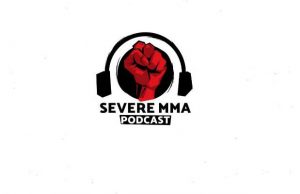MMA is one of the world’s youngest organized sports. The first US competition was held in 1983. Yet already, it has become the third most popular sport behind soccer and basketball with 451 million international fans. In 2018, 2.4 million people paid to watch Khabib versus McGregor, dubbed the biggest match in the history of US MMA.
MMA developed in the mid-20th century as a hybrid between Hong Kong’s eclectic street fighting culture and Japanese wrestling. Contemporary MMA still holds to the principle that it should replicate real, unarmed combat. Fighters are allowed to use techniques from various sports like boxing, judo, karate, and wrestling.

The promotion companies are key
A lot of MMA’s success in drawing fans comes down to the effectiveness of the promotion companies. The high-profile fights that, on top of being major sports events, are also exciting public media spectacles. Around the world, major promoters are organizing MMA events that draw massive crowds. The world’s most famous is the UFC in North America while Australia’s leading MMA events organizer is Eternal MMA. But the MMA experience is not only about watching: many fans also like to place bets on their favorite fighters. Most online platforms offer bets for the biggest UFC and eternal MMA events on their websites and apps. Thus, spectators can watch the event and at the same time place bets on their phones.
There’s big money to be made through the pay-per-view model that dominates MMA match screening. The promotion companies are always looking for new opportunities for getting their sport more airtime. The UFC made a $1.5 billion TV deal with ESPN in 2018. In the same year, the Professional Fighters League (PFL) made a deal with Facebook Watch. The social media platform is the main viewing outlet for matches and draws an average of 2 million viewers per match. The companies have also been drawing new fans through their MMA video game franchises. The UFC released the first MMA video game in 2000. Since then, MMA has become a gaming genre in its own right. Bringing the sport to new audiences means branching out into new formats and this is exactly what the promotion companies have been doing tirelessly.
Celebrity endorsements
Celebrities have also been drawing attention to the sport. Joe Rogan, host of one of the world’s most popular podcasts, is a big fan. He has often interviewed MMA wrestlers on his show. Tons of major celebrities are known to be MMA fans, including Idris Elba and Leonardo DiCaprio. The most famous MMA fighter in the world is Conor McGregor. Self-described ‘face of the fight game’ regularly posts MMA, training, and personal content on his 45 million-follower Instagram account. This has further boosted the profile of the sport.
Governance and safety
In its early days, MMA had a reputation for being a dangerous free-for-all. However, the gradual regulation and professionalisation of the sport over the 2000s has changed this perception. MMC now has an international sanctioning body and a codified set of safety rules. To indicate just how far MMA’s image has come, take the example of US politician John McCain. In the 90s, he was a vocal campaigner for banning the game. By 2014 however, McCain commented that he would ‘absolutely’ have tried the sport if it had been available at his Naval Academy. This just shows how successfully the sport has managed to elevate its legitimacy to rival more traditional spectator sports like boxing, soccer, and basketball.



